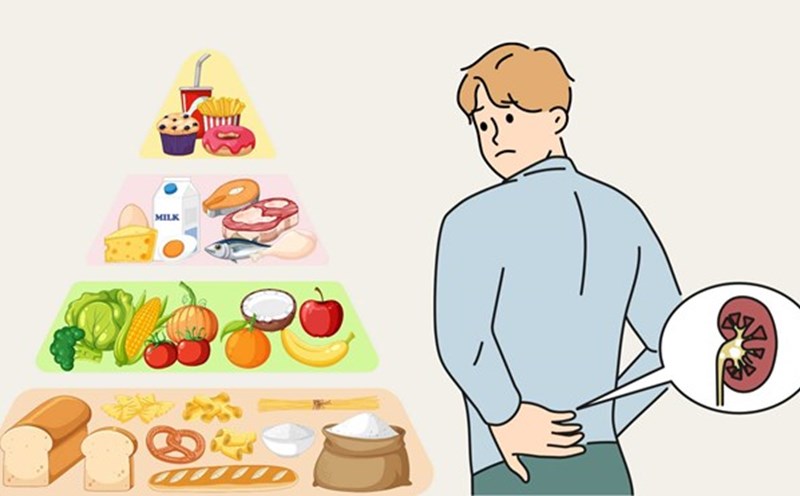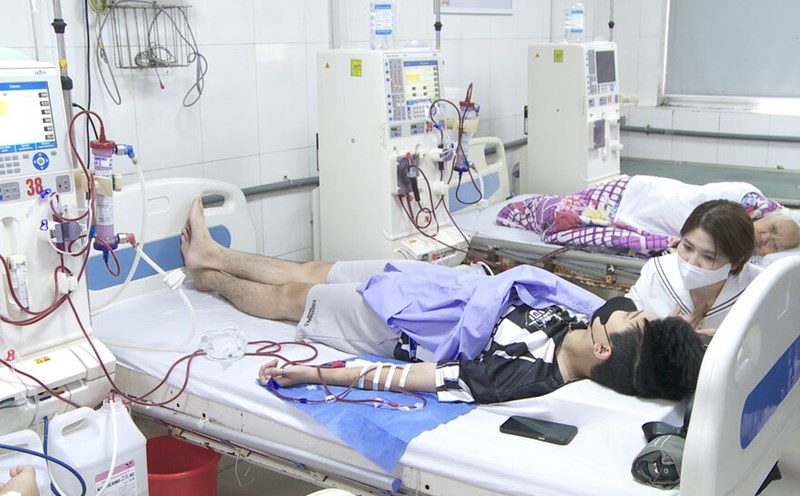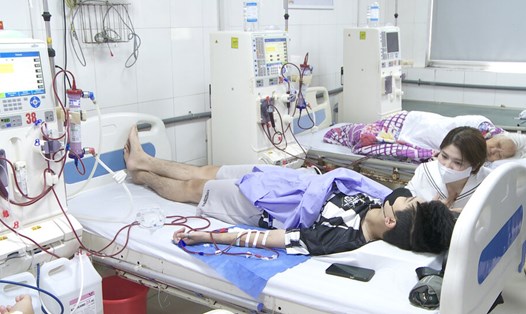The Central Highlands General Hospital is one of three public hospitals in Dak Lak province that organizes dialysis for patients.
The hospital currently has 190 patients registering for monthly dialysis and receives 10 patients for emergency dialysis every day. Notably, the number of patients with the disease tends to be younger.
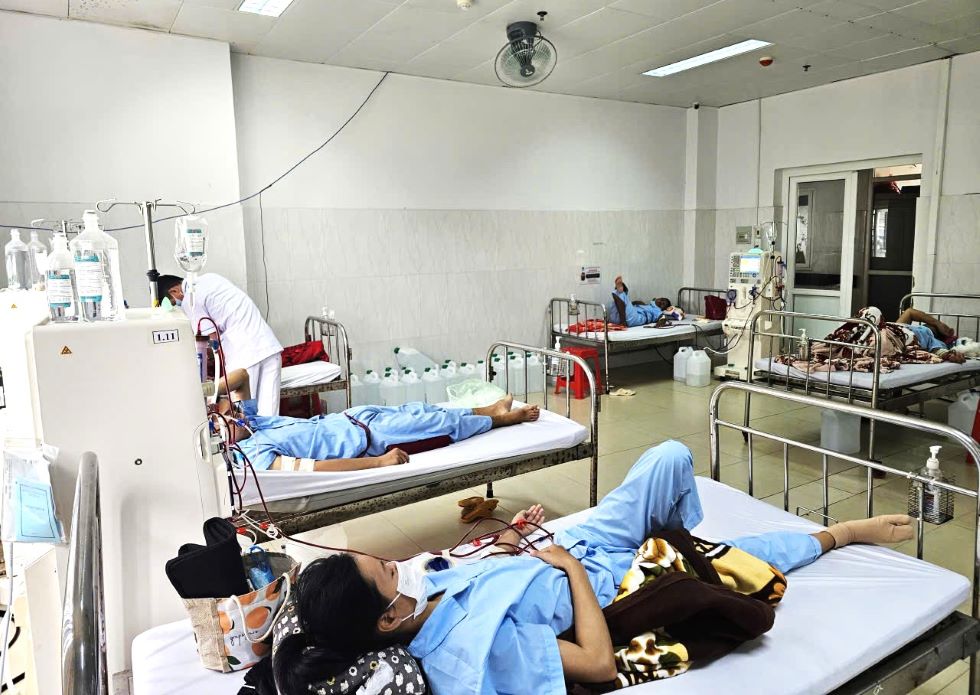
At just 35 years old, Mr. T.V.T (in Ea Ning commune, Dak Lak province) has lived with chronic kidney failure for 18 years. Mr. T discovered that he had end-stage kidney failure at the age of 17. At a very young age, he has to go to the hospital three times a week to have his kidney filtered.
The disease not only takes away health but also erodes the economy of those who unfortunately suffer. The story of Mr. D.T.T (residing in Quang Phu commune, Dak Lak province) reflects the wear and tear of both the body and the money due to chronic kidney failure.
Mr. T was diagnosed with stage 2 chronic kidney failure 10 years ago. Since then, he has been going everywhere for treatment, and his family's finances have gradually exhausted him, but his condition has not improved. In 2018, the disease passed to the final stage, so he had to have a kidney transplant to maintain his life.
Doctor Nguyen Thi Thanh Binh, Department of Intensive Care and Anti-Poison (Cestern Highlands General Hospital) said that chronic kidney failure has been getting younger in the past 5 years. Many patients aged 20-35 have had dialysis or kidney transplants to maintain their lives.
The main reason is that people have not paid attention to health care early. Usually, patients are hospitalized in serious condition. Unhealthy lifestyles, such as eating fast food, drinking less water, staying up late and taking medication, also contribute to an increased risk of kidney failure.
Most patients with dialysis are no longer able to work and have difficult family circumstances. Although kidney transplants are possible, poor health due to long-term kidney filtering, anemia and the risk of other diseases makes kidney transplantation complicated.
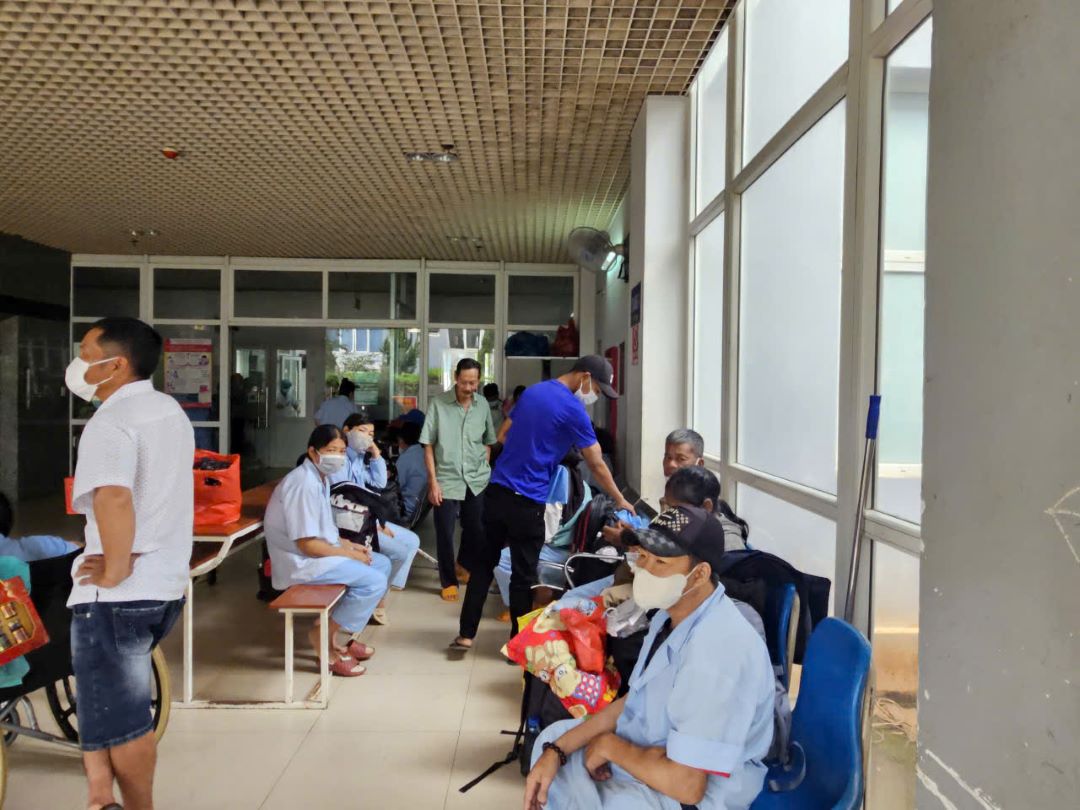
Doctor CKII Huynh Thi Doan Dung, Deputy Head of the Department of Intensive Care and Anti-Poison (Cestern Region General Hospital) added that many patients with chronic kidney failure are very young.
Some people in their 20s have kidney disease. Some cases of chronic kidney disease were detected while pregnant during health check-ups.
For people with end-stage kidney failure, the treatment is almost gone and they can only have kidney replacement, which is both difficult and expensive.
The need for dialysis of patients is increasing while the hospital only has 24 dialysis machines that have been used for a long time, which are often damaged, leading to overload.
Dr. Dung recommends that people should maintain a healthy lifestyle, limit the abuse of processed foods, increase physical activity and follow the doctor's instructions when using medication.
Without timely prevention and screening measures, chronic kidney failure will create a great burden for individuals, families and society.


